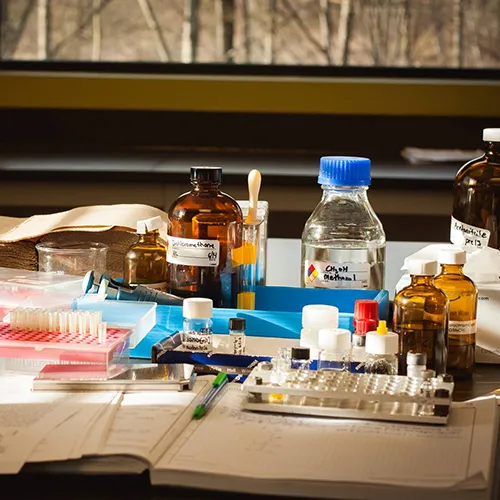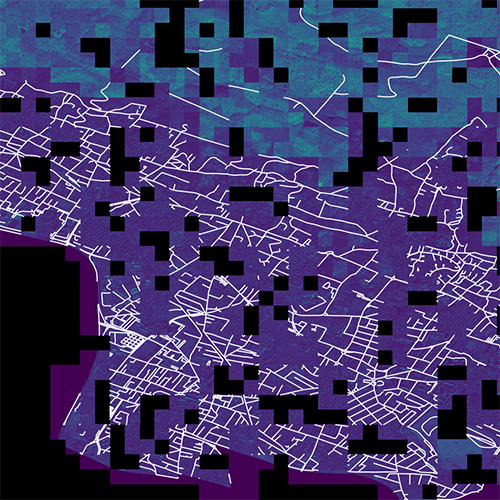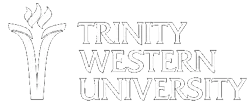|
|
I transform data into action by interpreting our quantitative world. |
I am a well-rounded data scientist who thrives in research environments. I am naturally outgoing, curious, and an empathetic communicator. My strengths are analytical and visual storytelling, hypothesis-driven experimentation, and fostering collaborative environments. I have domain knowledge of optimization algorithms, numerical simulations, and various machine-learning models.
Skills
- Python
- Shell / Zsh
- SQL
- Git
- HTML / CSS / PHP
- JavaScript / jQuery
- Google Apps Script
- LaTeX
- MATLAB
- Arduino
- XML / SVG
- Bayesian optimization
- Multiobjective optimization
- Computer vision
- Model validation
- Google Cloud Platform
- Adobe Creative Suite
- SolidWorks
- Docker
- Linux
- Numpy / Pandas
- TensorFlow
- Multiprocessing
- Scikit-learn
- PyTorch
- SciPy
- GDAL
- Plotly / Dash
- Matplotlib
- Flask
- Luigi
- Automated data analysis
- Simulation and optimization
- Geospacial datasets
- Hyperspectral imaging
- Data pipelines
- Slurm (for HPC)
- Object-orientated programming
- Test-driven development
- Scrum
- Remote sensing
- Optical design
- Microscopy / Photography
- Circuit design / soldering
Experiences
I built the world’s first self-driving lab for thin films

|
I cofounded and led a program of >30 engineers and scientists that deployed autonomous robotic laboratories. My team used flexible automation to build self-driving labs that automate materials discovery. As lead data scientist, I implemented multi-objective Bayesian optimization algorithms, performed multithreaded simulations, developed pipelines and dashboards, designed automated experiments, and created custom spectrometers. The project resulted in 9 publications, >200 citations, and >$1.5M in follow-on funding. | 2020-2022 |
I processed nuclear fusion reactor data at Google

|
As a Technical Program Manager and Software Engineer intern, I created a dashboard that ingested calorimetry data from fusion reactors. The dashboard enabled 30 collaborators to make on-the-fly experimental decisions. I open-sourced the system identification software used to model the reactors. | 2017 |
I redefined a chemical bond

|
I devised a new way to characterize the interfaces within a solar cell. The electron transport at these interfaces determines device performance, and my research improved the performance of solution-processed solar cells by 25%. My work also redefined the halogen bond—a bond previously misunderstood by the chemistry community. | 2016-2020 |
I developed an enclosure to protect clinicians from COVID-19

|
I developed an open-source patient enclosure to protect staff who are performing procedures on infectious patients. The enclosure was rapidly prototyped in partnership with healthcare staff, has been adopted in more than 5 countries, and is used on actual patients. | 2020 |
I taught chemistry laboratories and lectures at TWU and UBC

|
As a chemistry laboratory lecturer, I have instructed >600 students and mentored 28 instructors. My responsibilities included developing my own lecture material, maintaining a safe lab environment, and evaluating instructors. I've received >95% favorable course reviews. | 2010-2011, 2015-2016, 2020 |
I cofounded a tutoring company

|
I cofounded a tutoring company that hired tutors to mentor secondary and post-secondary students in STEM subjects. I created booking software, marketed the company, hired tutors, and managed the finances. | 2015-2017 |
I engaged a local artist to fundraise for chemistry research

|
I commissioned a local artist to create a 10-foot-wide artistic representation of the periodic table of elements using 103 individual canvases. Each canvas was sponsored by donors to raise funds for academic research at Trinity Western University. (TW Magazine, issue 25, page 8.) | 2014 |
I developed novel fluorine polymers for MRI contrast reagents

|
I built self-assembling block copolymers for use as MRI contrast reagents at ENSCM (Montpellier, France). I used RAFT polymerization to control the size distribution of fluorine- and phosphorus-containing polymers for use as tailored therapeutics. | 2014 |
I synthesized catalysts for pharmaceutical applications

|
I synthesized asymmetric catalysts for pharmaceutical and polymer synthesis applications during my undergraduate degree. This research led to three publications and created several new research projects. I was awarded three NSERC research grants to perform this work. | 2010-2015 |
I protected crops by installing bird boxes with cameras

|
I designed and completed a study that proved kestrel hawks scare off pests when encouraged to nest near fruit fields. I acquired funding from the British Columbia Ministry of Agriculture, designed custom bird boxes with cameras, built relationships with local farmers to install boxes near their fields, and observed how the ecosystems changed after the boxes were installed. (Photo credit: David George.) | 2010-2013 |
I managed an environmentally sensitive ecosystem

|
I managed 40 acres of an environmentally sensitive ecosystem in Langley, British Columbia. I maintained public access to the land, trained scientists in research techniques, and secured funding from the Canadian government to measure local salmon populations. | 2010-2011 |
Projects
Maps colored by road suffix

|
I wrote a package to map any location with the roads colored by their suffix (e.g., road, street, avenue, etc.) The map data is automatically downloaded from the OpenStreetMap API for a given latitude / longitude bounding box. |
A map of the trees of Vancouver, BC

|
I created an interactive map that describes the city-owned trees within Vancouver, BC. The data was provided by the City of Vancouver and visualized using Dash. |
Visualization of SpaceNet data with GDAL

|
I visualized the PAN band of satellite data of Paris, France. The geoTIFF and geoJSON data was provided by SpaceNet and was processed using the GDAL library. |
Sheet music for birds

|
I wrote a package to visualize bird songs as spectrograms. The audio file is processed with a rolling Fast Fourier Transform window. |
Education
|
Ph.D. in Chemistry, The University of British Columbia Advisor: Prof. Curtis P. Berlinguette. |
2015-2022 |
|
B.Sc. in Chemistry, Trinity Western University President's Scholarship & Dean's List recipient Advisors: Prof. Craig D. Montgomery, Prof. Karen M. M. Steensma. |
2010-2014 |
Awards
| Front cover art for the journal: Digital Discovery (Royal Society of Chemistry) | 2022 |
| Innovation Awards from TechConnect | 2019, 2022 |
| QuEST fellowship from the Stewart Blusson Quantum Matter Institute (SBQMI) | 2016-2022 |
| Collaborative Research and Training Experience (CREATE) fellowship from NSERC | 2015, 2016 |
| Balard Mobility Grant from Pôle chimie Balard | 2014 |
| Best Poster Presentation in Category, Western Canadian Undergraduate Chemistry Conference (WCUCC) | 2013 |
| President’s Scholarship from Trinity Western University | 2013 |
| Undergraduate Student Research Award (USRA) from NSERC | 2012, 2013, 2015 |
Publications
A (*) denotes where two authors contributed equally.| MacLeod, B. P.*, Parlane, F. G. L.*, & Berlinguette, C. P. How to build an effective self-driving laboratory. MRS Bulletin 48, 173–178 (2023). |
| Rupnow, C., MacLeod, B. P., Mokhtari, M., Ocean, K., Dettelbach, K. E., Lin, D., Parlane, F. G. L., Chiu, H. N., Rooney, M. B., Waizenegger, C., de Hoog, E., Berlinguette, C. P. A Self-driving Laboratory Optimizes A Scalable Process For Making Functional Coatings. Invited submission: NeurIPS AI4Mat 2022 Spotlight, OpenReview (2022). |
| Tian, S. I. P., Ren, Z., Venkataraj, S., Cheng, Y., Bash., D., Oviedo, F., Senthilnath, J., Cellappan, V., Lim, Y.-F., Aberle, A. G., MacLeod, B. P., Parlane, F. G. L., Berlinguette, C. P., Li, Q., Buonassisi, T., Liu, Z. Transfer Learning for Rapid Extraction of Thickness from Optical Spectra of Semiconductor Thin Films. Under revision, arXiv (2022). |
| MacLeod, B. P.*, Parlane, F. G. L.*, Brown, A. K., Hein, J. E., & Berlinguette, C. P. Flexible automation for self-driving laboratories. Accelerated Materials Discovery (De Gruyter) 4, 105-122 (2022). |
| MacLeod, B. P.*, Parlane, F. G. L.*, Rupnow, C. C., Dettelbach, K. E., Elliott, M. S., Morrissey, T. D., Haley, T. H., Proskurin, O., Rooney, M. B., Taherimakhsousi, N., Dvorak, D. J., Chiu, H. N., Waizenegger, C. E. B., Ocean, K., Mokhtari, M., & Berlinguette, C. P. A self-driving laboratory advances the Pareto front for material properties. Nat Commun 1, 45-51 (2022). |
| MacLeod, B. P., Parlane, F. G. L., Brown, A. K., Hein, J. E., & Berlinguette, C. P. Flexible automation accelerates materials discovery. Nat. Mater. 7, 722-726 (2022). |
| Huang, A., Delima, R. S., Kim, Y., Lees, E. W., Parlane, F. G. L., Dvorak, D. J., Rooney, M. B., Jansonius, R. P., Fink, A. G., Zhang, Z., & Berlinguette, C. P. Direct H2O2 Synthesis, without H2 Gas. J. Am. Chem. Soc. 32, 14548-14554 (2022). |
| Lees, E. W., Mowbray, B. A. W., Parlane, F. G. L., & Berlinguette, C. P. Gas diffusion electrodes and membranes for CO2 reduction electrolysers. Nat Rev Mater 1, 55-64 (2021). |
| MacLeod, B. P.*, Parlane, F. G. L.*, Morrissey, T. D., Häse, F., Roch, L. M., Dettelbach, K. E., Moreira, R., Yunker, L. P. E., Rooney, M. B., Deeth, J. R., Lai, V., Ng, G. J., Situ, H., Zhang, R. H., Elliott, M. S., Haley, T. H., Dvorak, D. J., Aspuru-Guzik, A., Hein, J. E., & Berlinguette, C. P. Self-driving laboratory for accelerated discovery of thin-film materials. Sci. Adv. 20, 853-859 (2020). |
| Taherimakhsousi, N., MacLeod, B. P., Parlane, F. G. L., Morrissey, T. D., Booker, E. P., Dettelbach, K. E., & Berlinguette, C. P. Quantifying defects in thin films using machine vision. npj Comput Mater 1, 6060-6064 (2020). |
| Suntrup, L., Stein, F., Klein, J., Wilting, A., Parlane, F. G. L., Brown, C. M., Fiedler, J., Berlinguette, C. P., Siewert, I., & Sarkar, B. Rhenium Complexes of Pyridyl-Mesoionic Carbenes: Photochemical Properties and Electrocatalytic CO2 Reduction. Inorg. Chem. 7, 4215-4227 (2020). |
| Berlinguette, C. P., Chiang, Y., Munday, J. N., Schenkel, T., Fork, D. K., Koningstein, R., & Trevithick, M. D. Revisiting the cold case of cold fusion. Nature 7759, 45-51 (2019). |
| Carroll, H. K., Parlane, F. G., Reich, N., Jelier, B. J., & Montgomery, C. D. Phosphoramidite complexes of Pd(II), Pt(II) and Rh(I): An effective hydrosilylation catalyst of 1-hexyne and 1-octene. Inorganica Chimica Acta 465, 78-83 (2017). |
| Parlane, F. G. L., Mustoe, C., Kellett, C. W., Simon, S. J., Swords, W. B., Meyer, G. J., Kennepohl, P., & Berlinguette, C. P. Spectroscopic detection of halogen bonding resolves dye regeneration in the dye-sensitized solar cell. Nat Commun 1, 14548-14554 (2017). |
| Hu, K., Blair, A. D., Piechota, E. J., Schauer, P. A., Sampaio, R. N., Parlane, F. G. L., Meyer, G. J., & Berlinguette, C. P. Kinetic pathway for interfacial electron transfer from a semiconductor to a molecule. Nature Chem 9, 853-859 (2016). |
| Swords, W. B., Simon, S. J. C., Parlane, F. G. L., Dean, R. K., Kellett, C. W., Hu, K., Meyer, G. J., & Berlinguette, C. P. Evidence for Interfacial Halogen Bonding. Angew. Chem. 20, 6060-6064 (2016). |
| Simon, S. J. C., Parlane, F. G. L., Swords, W. B., Kellett, C. W., Du, C., Lam, B., Dean, R. K., Hu, K., Meyer, G. J., & Berlinguette, C. P. Halogen Bonding Promotes Higher Dye-Sensitized Solar Cell Photovoltages. J. Am. Chem. Soc. 33, 10406-10409 (2016). |
| Jelier, B. J., Montgomery, C. D., & Parlane, F. G. Deprotonation of a hydrophosphorane and synthesis of the Ni(II) metallophosphorane [NiCl{P(OC6H4N(CH3))2}(P(CH3)3)2]. Inorganica Chimica Acta 413, 121-127 (2014). |
Presentations
Talks
|
A Self-Driving Laboratory (video) Doctorate defence presentation: The University of British Columbia, The Department of Chemistry |
2022 |
|
Materials Research Society (MRS) - Fall Meeting & Exhibit (Boston, Massachusetts) Invited talk: Autonomously Optimizing Thin Film Morphologies Using Machine Vision. |
2019 |
|
102nd Canadian Chemistry Conference and Exhibition (CCCE; Quebec City, Quebec) Invited talk: Automated UV-Vis-NIR acquisition to enable autonomous optimization of thin films for electronics applications. |
2019 |
|
The University of British Columbia: Inorganic Discussion Group (Vancouver, British Columbia) Invited talk: Closing the Loop: Applying Self-Driving Labs to the Right Materials Problems. |
2019 |
|
The University of British Columbia: CHBE 597/697 (Vancouver, British Columbia) Invited guest lecturer: Good Visual Grammar: Design the right thing. |
2019 |
|
The University of British Columbia: CHBE 597/697 (Vancouver, British Columbia) Invited guest lecturer: Primer on Visual Grammar. |
2018 |
|
Stewart Blusson Quantum Matter Institute retreat (SBQMI; Vancouver, British Columbia) Invited talk: Project Ada: Optimizing a disordered organic semiconductor using an autonomous laboratory. |
2019 |
|
International Scientific Advisory Board (ISAB) for Stewart Blusson Quantum Matter Institute (SBQMI; Vancouver, British Columbia) Invited talk: Ada: Automated discovery of alloys. |
2018 |
|
Trinity Western University open house (Langley, British Columbia) Invited talk: Diverse research exposure at TWU. |
2017 |
|
The 95th Canadian Chemistry Conference and Exhibition (Québec City, Québec) Invited talk: Diverse research exposure at TWU. |
2017 |
Posters
|
Autonomously Optimizing Thin Film Morphologies Using Machine Vision Invited presentation: Canada First Research Excellence Fund Event, Stewart Blusson Quantum Matter Institute, UBC. |
2019 |
|
Temporal resolution of dye regeneration in mesoscopic solar cells Invited presentation: The University of British Columbia Chemistry Department. |
2016 |
|
Utilization of the hydridophosphorane HP(OC6H4NMe)2 as a ligand in Ni(II) and Pt(II) complexes Invited presentation: MJ Murdock College Science Research Conference, Vancouver, Washington. |
2013 |
|
Utilization of the hydridophosphorane HP(OC6H4NMe)2 as a ligand in Ni(II) and Pt(II) complexes Invited presentation: Trinity Western University Research Forum, Langley, British Columbia. |
2012 |
|
Utilization of the hydridophosphorane HP(OC6H4NMe)2 as a ligand in Ni(II) and Pt(II) complexes Invited presentation: MJ Murdock College Science Research Conference, Walla Walla, Washington. Awarded best poster. |
2012 |
Development
|
Role: Reviewer M4E Symposium 2023: Self-Driving Labs for Clean Energy Technologies |
2023 |
|
Role: Instructor Introduction to Python and scientific computing |
2022 |
|
Role: Safety Officer and Fire Warden Chemistry department: The University of British Columbia |
2015-2022 |
|
Course: Emergency First Aid & CPR/AED Level C Canadian Red Cross |
2019 |
|
Course: Presenting as a Leader The Humphrey Group |
2018 |
|
Course: HAM radio license The American Radio Relay League (ARRL) Callsign KM6NND. |
2017 |
|
Course: Discovering the Entrepreneur Within by Michelle Aguayo, Mitacs Step |
2016 |
|
Course: Foundations of Project Management by Michelle Aguayo, Mitacs Step |
2016 |
|
Course: Management Essentials for Leadership by Jacquelyn Brinkman, A Graduate Pathways to Success Workshop |
2016 |
|
Course: Chemistry Intellectual Property and Patent Law Short Course by Carbon Patent Group by Andris Macins, Carbon Patent Group |
2016 |
|
Course: Chemical Safety Training by Ted Sedgwick and Bruce Anderson, The University of British Columbia |
2015 |














